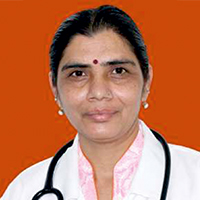

Successful Treatments
Clinics
Doctors
What is Infertility?
Infertility is defined as the inability to get pregnant (or to conceive) after 1 year of unprotected sex. Basically, Infertility is when a person cannot conceive after trying for a significant period. For women under 35, this period is usually one year of normal, unprotected sex. For women 35 and older, it's six months.
Infertility may affect both women and men and comes from various causes affecting any part of the reproduction process. In females, these processes include hormone production, egg maturation and release, and embryo implanting in the uterus. In males, the reason for infertility can be low or abnormal sperm production/function or blockages that prevent the delivery of sperm. Other conditions like injuries, long-term health problems, and even lifestyle choices are also factors responsible for male infertility.
There are 3 types of Infertility:
Primary Infertility: Where a couple has never been able to conceive.
Secondary Infertility: Where individuals or couples can not conceive after having previously managed to conceive.
Unexplained Infertility: Infertility for which no cause has been found despite testing.
In Ayurveda, Infertility is approached differently. Ancient texts such as those of Susrutha state, four requirements for conception:
- Ritu (the reproductive period)
- Kshethram (the female reproductive tract)
- Ambu (nutritional factors)
- Beejam (sperm and ovum)
A problem with any of these can cause problems with fertility. For example, an imbalance in Ritu might influence when and how eggs are released. Problems with Kshethram such as malformations of the reproductive tract may prevent an embryo from implanting. Poor Ambu, or nutritional support may affect the sperm and ovum health. Lastly, defects in Beejam (the sperm or ovum itself) may prevent conception.
Awareness about these aspects of fertility can facilitate timely diagnosis and treatment of Infertility as per the traditional Ayurvedic wisdom.
Common Causes of Infertility
There are a number of causes of Infertility which impact both men and women at various phases of the reproductive process. It's often a combination of factors that make it difficult to conceive despite repeated attempts.
Here are the common female Infertility causes:
Ovulatory Disorders: This includes polycystic ovary syndrome (PCOS), which can block the release of eggs.
Fallopian Tube Damage or Blockages: This can stop sperm from reaching the egg, and it is usually caused by pelvic inflammation or endometriosis.
Uterine Conditions: Conditions such as fibroids or polyps that prevent the fertilised egg from implanting.
Age-Related Factors: Women lose both quantity and quality of eggs, especially after age 35.
Here are some common male Infertility causes:
Low Sperm Count or Quality: Lack of sufficient sperm or poor-quality sperm may make fertilisation difficult.
Sperm Delivery Blockages: Problems such as vas deferens blockages may prevent sperm from being ejaculated properly.
Erectile Dysfunction: Problems obtaining or maintaining an erection may also prevent conception.
Lifestyle Factors: Smoking, excessive alcohol intake, and obesity can affect fertility in men.
General Factors affecting both genders:
Genetic Disorders: Fertility can be affected by some genetic conditions in both men and women.
Environment Toxins: Reproductive health may be influenced by exposure to pesticides, heavy metals and other contaminants.
Stress: High levels of emotional stress can affect hormones and fertility.
Signs and Symptoms of Infertility
Some people do not realise they’re facing Infertility until they attempt to conceive. Recognising these Infertility symptoms early may help couples seek timely medical advice and support.
The most noticeable symptoms of Infertility in women are:
The most obvious symptoms of Infertility in men are:
Changes in Sexual Desire: Decreased libido may be associated with hormonal problems that may also affect fertility.
Erection / Ejaculation Problems: Performance difficulties can impact the ability to conceive.
Pain, Swelling or Lumps in the Testicles: These symptoms may indicate underlying problems with sperm production or health.
Small, Firm Testicles: This might be an indication of a medical condition affecting sperm count.
General Infertility symptoms in both genders:
Inability to Conceive: This is the most common indicator of Infertility, i.e., if a couple can not conceive after a year (or six months if the woman is over 35) of trying.
Recurrent Miscarriages: Women who experience multiple miscarriages may have Infertility problems.
Do you have any of the following symptoms?
- Irregular menstrual cycles
- Severe cramps or pelvic pain during menstruation
- Abnormal menstrual bleeding
- Changes in sexual desire
- Erection or ejaculation issues
- Pain, swelling, or lumps in the testicles
- No periods
- Recurrent miscarriages
Jiva Ayunique™ Treatment Philosophy - A Holistic Approach to Infertility
Jiva Ayurveda offers holistic Ayurvedic treatment of Infertility using evidence-based Ayurveda. The treatment plans are customised to target the very root causes of the disease, and instead of just treating symptoms, they focus on holistic healing, balance and stability in totality.
Core Principles of the Jiva Ayunique™ Treatment Philosophy
HACCP certified Ayurvedic medicines: Scientifically created blends to restore balance in your body and support emotional health.
Yoga, Meditation & Mindfulness: Gentle practices to relax your body, enhance your mental health and improve quality of life.
Ayurvedic Therapies: Treatments include Panchakarma and soothing massages to detox the body and promote emotional balance.
Diet & Lifestyle Guidance: Expert tips to make changes in your eating and daily routine for better health and wellness.
Ayurvedic Medicines for Infertility
Ayurveda provides a number of herbal remedies for managing Infertility, a condition that affects many couples worldwide. These herbs are considered useful for their natural properties in supporting and improving reproductive health in both men and women.
Here are some important medicines traditionally used for Infertility treatment in Ayurveda:
Shatavari (Asparagus Racemosus): Shatavari is known as the "Queen of Herbs" in Ayurveda for supporting hormonal balance, menstruation cycles and fertility in women.
Ashwagandha (Withania Somnifera): This adaptogenic herb is believed to reduce stress, increase vitality and regulate the hormones necessary for good fertility.
Gokshura (Tribulus Terrestris): Gokshura can also improve sperm count and motility, especially for male Infertility treatment.
Shilajit: A mineral-rich resin that promotes vitality and improves reproductive health and energy levels in both men and women.
Vidarikand (Pueraria Tuberosa): It helps nourish the female reproductive organs and is especially supportive in enhancing fertility.
Kapikacchu (Mucuna Pruriens): This Ayurvedic herb benefits male fertility by improving sperm quality and testosterone production.
Lodhra (Symplocos Racemosa): This herb helps balance the hormones and regulate menstrual cycles, supporting female reproductive health.
Guduchi (Tinospora Cordifolia): Guduchi is an immune-modulating and antioxidant herb that supports complete reproductive health.
Triphala: A classic Ayurvedic blend that helps in detoxification and digestion, thus supporting overall well-being for better reproductive health.
Bala (Sida Cordifolia): Used for fertility treatment, this herb is known to strengthen and nourish the reproductive system.
Mucuna Pruriens (Kawach): This herb can help increase libido and sperm count, which is useful for male fertility.
Safed Musli: An aphrodisiac used for treating impotence, early ejaculation and decreased sperm count.
Kesar, Garlic, Long Pepper, Lavanga: These spices and herbs are known to increase libido and are a major component of Ayurvedic fertility treatment.
Nutmeg, Chandana: These can help prevent premature ejaculation for healthier sexual function.
Frequently Asked Questions About Infertility
Does female masturbation cause Infertility?
No, female masturbation does not cause Infertility. This is a normal activity which doesn't damage the reproductive organs or their functions.
At what age does Infertility most commonly affect women?
Infertility generally starts to worsen after age 35 in women as the quality and quantity of eggs decrease.
Can lifestyle changes help improve fertility?
Yes, lifestyle modifications such as maintaining a healthy weight, quitting smoking, reducing stress and exercising regularly could boost fertility.
How does Ayurveda diagnose Infertility?
Ayurvedic diagnosis of Infertility involves taking a detailed personal and medical history, physical examination and assessing dietary habits and lifestyle for dosha imbalances.
Is Infertility exclusively a woman's issue?
No, Infertility affects men and women almost equally. It may be due to male factors or female factors or issues with both partners.
How long should couples try to conceive before seeing a doctor?
Couples under 35 should try for a year and those over 35 should seek help after six months.
Can stress cause Infertility?
Although Infertility isn't caused by stress alone, it may worsen the factors that make conceiving more difficult by affecting hormones and overall health.
What Ayurvedic practices can help ease stress to promote fertility?
As per Ayurveda, stress reduction and fertility enhancement practices include yoga, meditation and pranayama (breath control).
Can dietary changes affect fertility?
Yes, a balanced diet containing fruits, vegetables, whole grains and lean proteins can support fertility by providing required nutrients and balancing the body’s doshas.
What is the first step in treating Infertility using Ayurveda?
The process begins with purification and detoxification of the body through Panchakarma, followed by rejuvenation with specific herbs and dietary modifications.
Are there Ayurvedic Infertility treatments for both men and women?
Yes, Ayurveda provides specific Infertility treatments and herbal medicines for both male and female Infertility issues separately.
What role does mental health play in Infertility?
Mental and emotional health can considerably impact fertility. Ayurveda stresses holistic health, including emotional and mental balance for improving reproductive health.
What preventive measures does Ayurveda suggest for fertility?
Ayurveda suggests regular detoxification, eating right, managing stress and living according to natural circadian rhythms for good reproductive health.
Is there a specific time for treatment of Infertility?
The treatment is most effective when both partners are healthy and before age 35 for women, due to higher egg quantity and quality.
Top Ayurveda Doctors
Our Happy Patients
Blogs
- 5 Common Causes of Infertility
- 5 Ayurvedic Home Remedies To Boost Male Infertility
- Best Ayurvedic Clinic for Infertility
- Male Infertility Treatment – Ayurvedic Ways to Boost Fertility
- इनफर्टिलिटी (बांझपन) का आयुर्वेदिक इलाज – प्राकृतिक तरीके से गर्भधारण के उपाय
- प्राकृतिक तरीके से संतान प्राप्ति – आयुर्वेदिक इलाज और परामर्श
- 6 साल लंबी Infertility की लड़ाई और हर उम्मीद टूट चुकी थी—आयुर्वेद ने कैसे दिखाई नई रोशनी?
Home Remedies
Related Disease
- Ayurvedic Treatment for Infertility
- Ayurvedic Treatment for Frigidity
- Ayurvedic Treatment for Leucorrhoea
- Ayurvedic Treatment for Menopause
- Ayurvedic Treatment for Adenomyosis
- Ayurvedic Treatment for Endometriosis
- Ayurvedic Treatment for Dysmenorrhea
- Ayurvedic Treatment for PCOS
- Ayurvedic Treatment for Vaginal Infection
- Ayurvedic Treatment For Vaginal Yeast Infection
- Ayurvedic Treatment for Hematuria
- Ayurvedic Treatment for Epididymitis
- Get Ayurvedic Treatment For Uterine Fibroids
- Ayurvedic Treatment for Hirsutism
- Get Ayurvedic Treatment for Menorrhagia
- Get Ayurvedic Treatment for Amenorrhea
Latest Blogs
- क्या एंटीबायोटिक लेने के बाद पाचन पूरी तरह बिगड़ गया? आयुर्वेद के अनुसार Colitis के उपचार जानें
- अगर मामूली आहार भी पाचन तंत्र सहन न कर पाए तो Colitis को हल्का क्यों नहीं मानना चाहिए? आयुर्वेदिक दृष्टि से जानें
- लंबे समय से सक्रिय Colitis क्यों शरीर की रिकवरी क्षमता को कमज़ोर कर देती है? आयुर्वेदिक नज़र से जानें
- नॉर्मल एंडोस्कोपी, नॉर्मल रिपोर्ट्स… फिर भी रोज़ दर्द—IBS में गलत इलाज कैसे बीमारी को Chronic बना देता है! आयुर्वेदिक उपचार समझें
- क्या बाहर का खाना या मसालेदार भोजन आपके IBS को तुरंत ट्रिगर कर देता है? आयुर्वेदिक दृष्टि से समझें और कब Ayurvedic doctor से मिलना चाहिए जानें
- IBS में दवाइयाँ काम क्यों नहीं करतीं? आयुर्वेदिक कारण और उपचार समझें
- कभी कब्ज़, कभी दस्त: यह सिर्फ पाचन नहीं, पूरे सिस्टम का असंतुलन हो सकता है! जानें कब Ayurvedic doctor से मिलना ज़रूरी हो जाता है
- क्या सर्दियों में दवाइयों के बावजूद साँस पूरी नहीं खुलती? अस्थमा की जड़ आयुर्वेद से समझें
- क्या धूल, धुआँ या परफ्यूम से तुरंत साँस लेने में तकलीफ़ होती है? Asthma के ट्रिगर आयुर्वेद की नज़र से समझें
- सर्दियों में अस्थमा क्यों ज़्यादा बिगड़ जाता है? ठंडी हवा और कफ-वृद्धि का आयुर्वेदिक कारण जानें
- क्या ठंडी हवा लगते ही सीने में जकड़न और साँस लेने में परेशानी होती है? अस्थमा को आयुर्वेद की नज़र से जानें
- क्या सुबह उठते ही बलगम के साथ खाँसी आना अस्थमा का संकेत है? आयुर्वेद से समझें
- क्या लंबे समय तक लैक्सेटिव का उपयोग आपकी कब्ज़ को और जटिल बना रहा है? आयुर्वेदिक समाधान जानें
- क्या गैस, पेट फूलना और सिरदर्द का साथ में होना Chronic Constipation का क्लासिक पैटर्न है? आयुर्वेदिक व्याख्या समझें
- क्या सुबह नींद खुलते ही पेट साफ न होना ‘धीमी अग्नि’ का संकेत है? दीर्घकालिक कब्ज़ में आयुर्वेदिक कारण जानें next topic
- क्या लंबे समय तक बैठकर काम करने से आपकी कब्ज़ लगातार बढ़ रही है? आयुर्वेदिक दृष्टिकोण देखें
- क्या कब्ज़ के चलते आपकी नींद, ऊर्जा और पाचन सब प्रभावित हो रहे हैं? आयुर्वेद में इसके मूल कारण और ज़रूरी उपाय जानें
- क्या तनाव और चिंता भी Chronic Constipation का छुपा हुआ कारण बन सकते हैं? आयुर्वेदिक दृष्टि देखें
- क्या कई दिनों तक कठोर स्टूल बनना और पेट में ऐंठन रहना Chronic Constipation की पहचान है? आयुर्वेदिक संकेत समझें
- क्या पानी कम पीने और अनियमित भोजन-समय का आपकी कब्ज़ पर बड़ा प्रभाव है? आयुर्वेद की नज़र से समझें
Ayurvedic Doctor In Top Cities
- Ayurvedic Doctors in Bangalore
- Ayurvedic Doctors in Pune
- Ayurvedic Doctors in Delhi
- Ayurvedic Doctors in Hyderabad
- Ayurvedic Doctors in Indore
- Ayurvedic Doctors in Mumbai
- Ayurvedic Doctors in Lucknow
- Ayurvedic Doctors in Kolkata
- Ayurvedic Doctors in Patna
- Ayurvedic Doctors in Vadodara
- Ayurvedic Doctors in Ahmedabad
- Ayurvedic Doctors in Chandigarh
- Ayurvedic Doctors in Gurugaon
- Ayurvedic Doctors in Jaipur
- Ayurvedic Doctors in Kanpur
- Ayurvedic Doctors in Noida
- Ayurvedic Doctors in Ranchi
- Ayurvedic Doctors in Bhopal
- Ayurvedic Doctors in Ludhiana
- Ayurvedic Doctors in Dehradun









































